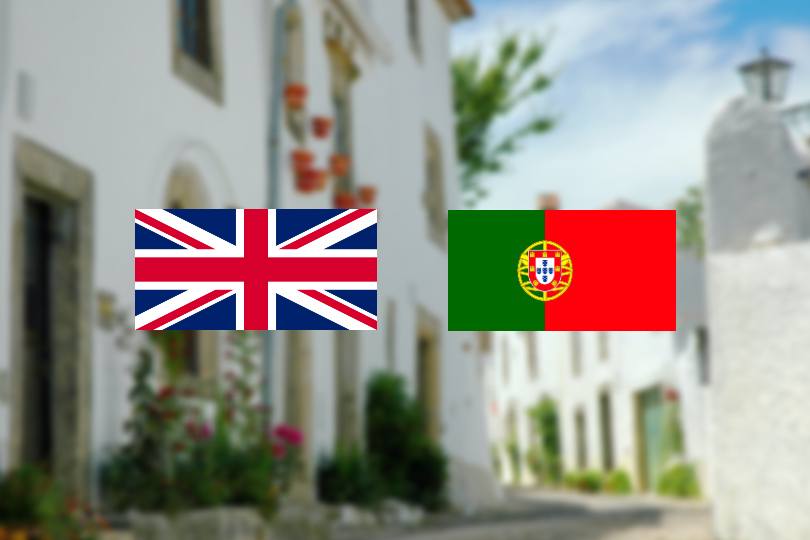
If you want to transfer your UK pension to Thailand, you only need your existing UK scheme details.
Meanwhile, I can handle the rest and ensure you do not incur needless taxes and fees. Contact me, Dan Ward.
Also consider: Read more about how to transfer your UK pension
Looking to transfer your UK pension?
Speak to me, Dan Ward, about transferring your UK pension funds to Thailand.
Checklist for transferring a UK pension to Thailand
- Collate existing UK pensions
- Request a CETV (Cash Equivalent Transfer Value)
- Conduct a cost and performance comparison
- Identify the best solution for Thailand – I can help with this
- Submit transfer request documentation to the existing and new provider
Advice Requirement
Legally you must seek specialist advice before attempting to transfer any safeguarded benefits when you have £30,000 or more in some UK pension savings.
UK advisers generally lack the appropriate licences, experience and knowledge of international funds to guide your pension transfer safely.
As an expat financial adviser, I specialise in transferring pensions to different countries worldwide and can help you enjoy your pension income safely in Thailand.
What is a UK pension, and how do you know if you have one?
There are three broad categories of pension, the state pension, workplace schemes and personal plans. Anyone living and working in the UK will likely have at least one such pension, but holding multiple pensions is very common. Annual contribution limits vary depending on your income. For example, the average yearly maximum is £60,000 for those earning £200,000 or less, which is tapered for higher earners.
All workplace and personal pensions qualify for tax relief at your marginal UK income tax rate on contributions. When invested, the growth of your pension savings is free of capital gains tax. A tax-free lump sum of up to a quarter of your pot is available whilst you are a UK tax resident. From then on, your pension income is taxable according to your tax code, but you only pay tax when your income exceeds your personal allowance.
Taking the 25% lump sum when non-resident in the UK makes it an unauthorised withdrawal and will cost you over half your retirement savings in payment.
UK State Pension
You only qualify for the UK state pension if you have made enough national insurance contributions. Checking the government’s pension forecasting website allows you to find out your state retirement age and, in some cases, how to fill in any gaps in your national insurance contributions to increase your state pension.
Your state pension will be frozen in Thailand, meaning it will not annually keep pace with inflation in the same way as it does for UK residents.
Workplace
Because it has been compulsory since 2012 to automatically enrol employees in an occupational pension plan, if you have ever had a UK employer, you should have at least one and many people have several. Use the government’s pension tracing service to round up any workplace pensions you may have.
Workplace plans will be in the form of defined benefit or defined contribution schemes. If you are unsure which you have, ask the pension manager at work.
Defined Benefit
Defined benefit, also known as ‘final salary’ schemes, guarantee a proportion of your former wage based on your years of pensionable service. They are widespread throughout the UK public sector and less often offered by private sector employers. Transferring to an overseas scheme may be possible but not necessarily in your best interests.
Speak with your UK pension provider in the first instance; a defined benefit pension transferred to any other pension scheme places your safeguarded benefits at tremendous risk.
Defined Contribution
Every other type of workplace and all personal pension plans will be some kind of defined contribution (DC) scheme. The pension provider invests your contributions for you, and the success or otherwise of these investments decides how much money you receive when you retire.
Some older workplace DC arrangements will oblige you to purchase an annuity from your pot in return for guaranteed income upon retirement. A pension transfer to an overseas scheme can help you avoid this.
Notable variants are small self-administered schemes available only to company directors and senior executives of small firms and group SIPPs. Both permit greater investment flexibility and control, including the option to hold commercial property in your pension savings.
Personal
There are various personal pension plans for the self-employed and anyone making extra retirement provisions. You can find out what form yours takes by reading the yearly letter from your pension scheme administrator. This statement should summarise how much you have saved and how well the investments have performed. Two enduringly popular plans are stakeholder, accessible even to those on very low incomes, and self-invested personal pensions, commonly known as SIPPs.
Looking to transfer your UK pension?
Speak to me, Dan Ward, about transferring your UK pension funds to Thailand.
Can I transfer my UK pension to Thailand?
When retiring abroad, you can transfer most workplace and personal pensions to an international SIPP or a qualifying recognised overseas pension scheme (QROPS or ROPS). Both these arrangements share several expat-friendly features:
- Hold all your pension savings in one easy-to-manage pot
- Reduce currency risk – swerve those costly exchange commission rates by denominating a solid global currency
- Flexible drawdown – greater freedom to access your benefits
- Enhanced investment flexibility – invest in a range of worldwide options
- Tax-free pension commencement lump sum of up to 25% – if taken while you are a UK resident
- Escape various UK taxes – subject to residential status abroad
The choice between an international SIPP and a QROPS or ROPS comes down to your unique circumstances. It is best deliberated exceptionally carefully with a financial adviser who is also an international pension transfer specialist. Read on to understand the differences between these overseas pension schemes, and remember you can always ask me if you would like further details or clarification.
Qualifying Recognised Overseas Pension Scheme
Qualifying recognised overseas pension schemes, known as QROPS or ROPS, are offshore arrangements that meet the exacting requirements of His Majesty’s Revenue and Customs (HMRC). They must be broadly similar in structure to UK pension schemes regarding contributions and withdrawals.
HMRC do not explicitly approve QROPS or ROPS, but they maintain a list of overseas scheme providers who meet the standard. You must personally check this list to verify that any recognised overseas pension scheme is there. Please do so to avoid scams and unauthorised withdrawal payments.
Currently, HMRC does not recognise any Thai pension scheme as an overseas pension scheme suitable to accept a UK transfer. Still, you could consider QROPS based in the European Economic Area such as Malta, but I must warn you against the overseas transfer charge. As you will not be a tax resident in any EEA country, you must pay a quarter of your pension fund transfer value.
You can avoid such unnecessary tax charges when you opt for an international SIPP instead.
International Self-Invested Personal Pension, SIPP
SIPPs are a uniquely flexible pension wrapper granting access to a virtually limitless range of investments. It is worth noting that not every SIPP provider works directly with members of the public. Some products are only accessible via a specialist financial adviser.
There is no overseas transfer charge for an international SIPP because it remains in the UK under the Financial Conduct Authority’s (FCA) watchful eye. The FCA also regulates every SIPP provider.
How are foreign pensions taxed in Thailand?
There is a Double Tax Agreement in force between Thailand and the UK, protecting you from paying tax in both countries. However, the tax treatment is always dependent upon your residential status.
The UK Foreign, Commonwealth, and Development Office recommends seeking advice from an English-speaking lawyer in Thailand if you are a British expatriate.
Thai Retirement Visas for Expats
The Thai Embassy website has a step-by-step guide to the application process for residency permits, beginning with the ‘O’ visa, which you may later extend into a retirement visa provided you satisfy the financial and all other requirements.
Feel free to get in touch if you would like to discuss any of this in more detail. I can help you make the most tax-efficient choices for your retirement in Thailand.
Looking to transfer your UK pension?
Speak to me, Dan Ward, about transferring your UK pension funds to Thailand.
Please note
A pension is a long-term investment. The fund value may fluctuate and can go down, which would have an impact on the level of pension benefits available. Your pension income could also be affected by the interest rates at the time you take your benefits.
Overseas pension transfers can be complex. Make sure you take financial advice before you transfer your funds.




